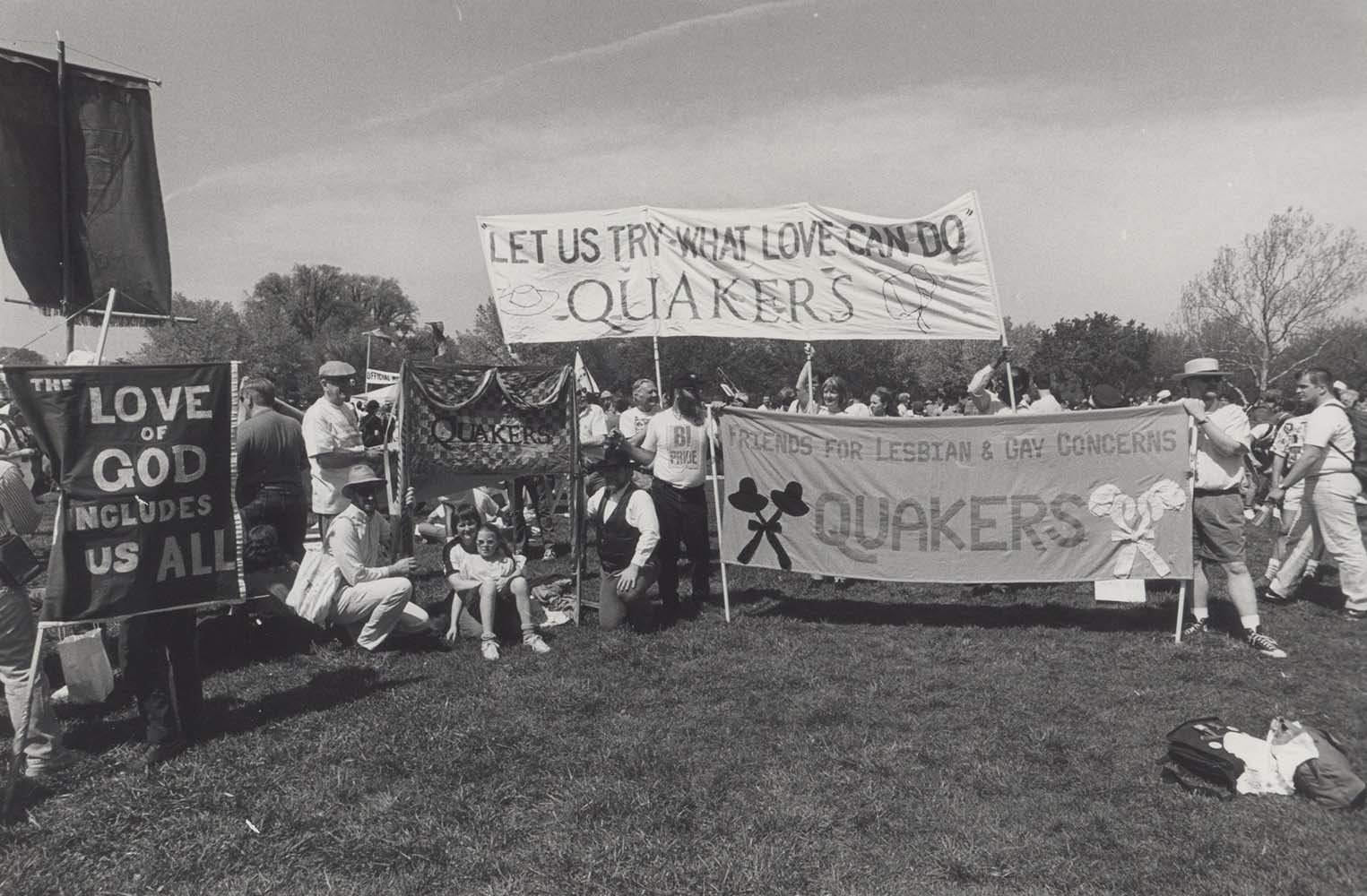Friends Historical Association Past Events
Fall 2024
Saturday, November 2, 2024 - “New England Yearly Meeting and the Indigenous Boarding Schools” (Virtual event)
New England Yearly Meeting (NEYM) played a significant role in establishing and supporting several Indigenous day and boarding schools intended to further the federal government’s program of assimilation of Native Peoples and the opening of reserved land for settlement and exploitation. In 2022, responding to requests from the US Dept. of the Interior and the National Native American Boarding School Healing Coalition (NABS), NEYM set up a research group to investigate the details of its involvement. In this presentation, members of NEYM’s Indigenous Boarding School Research Group presented a summary of their findings and outlined their research process and challenges.
This event included a brief update on a NABS project to digitize Quaker records at Swarthmore and Haverford colleges.
Gordon Bugbee, DMin MPA, was the lead researcher and author of the report. He is a longtime member of Beacon Hill Monthly Meeting, on the traditional lands of the Massachusetts Tribe, and also serves on NEYM’s Right Relations Resource Group. In February 2024 Gordon was led to conduct research at NARA/Fort Worth and the Oklahoma Historical Society and to visit some of the sites where NEYM-supported schools were located. He was accompanied by his elder, Suzanna Schell, also of NEYM.
Spring 2024
Sunday, May 19, 2024 - Tour of Pennsbury Manor, the home of William Penn (in-person event)
Pennsbury Manor is a reconstruction of William Penn’s country estate set along the Delaware River, approximately one-hour drive away from Philadelphia, Pennsylvania. As the only site in the nation dedicated to preserving the historical significance of William Penn, Pennsbury Manor also tells the stories of the colonists, servants, enslaved people, and Native Americans who lived on this land.
This special visit for the Friends Historical Association focused on William Penn's Quakerism and his relationship to George Fox. It included a tour and conversation, both with Site Director Doug Miller.
After the tour and conversation, visitors were welcome to continue exploring Pennsbury Manor on their own. There were Open-Hearth Cooking demonstrations.
Interested friends are invited to attend Meeting for Worship at Fallsington Friends Meeting.
Wednesday, May 29, 2024 - “William Penn: Enigmatic Quaker, Founding Father” by J. William Frost (virtual event)
Within the Society of Friends, George Fox is a towering figure often cited as the founder of the faith. But to outsiders, in the 17th century and today, William Penn is the archetypal Quaker. For the 400th Anniversary of George Fox’s birth, J. William Frost presented a virtual talk on William Penn that excavates his life as a deeply religious man who experienced personal triumph and success as well as tragedy and failure, as well as his connections to George Fox.
While many recognize William Penn as the founder of Pennsylvania and a defender of religious liberty, much less is known about Penn as a man of faith. Frost’s forthcoming book, William Penn: A Radical, Conservative Quaker (Penn State University Press, November 2024) examines Penn as a deeply religious man whose contradictions reflect, at least in part, his turbulent times. This intriguing history fills significant gaps in writings about Penn--particularly concerning Penn's faith and its intersection with his work as a statesman and politician.
J. William Frost is Howard M. and Charles F. Jenkins Professor Emeritus of Quaker History and Research and Director Emeritus of the Friends Historical Library at Swarthmore College. Among his many publications, he is the author of The Quaker Family in Colonial America: A Portrait of the Society of Friends and A Perfect Freedom: Religious Liberty in Pennsylvania, the latter also published by Penn State University Press. He has edited books on George Fox, antislavery, and George Keith and served as editor of the Pennsylvania Magazine of History and Biography.
Fall 2023
Annual Meeting, Saturday, November 4th, 2023
Lecture (Virtual): “Towards a Quaker History of LGBTQ+ Inclusion and Gay Rights” by Brian Blackmore, Director of Quaker Engagement at the American Friends Service Committee.
Many Friends are aware of Towards a Quaker View of Sex (1963), the first public and positive evaluation of gay and lesbian sexuality from a religious assembly, and yet many other important contributions made by Friends to the advancement of gay rights during the middle to late twentieth century are less well known. Additionally, the efforts to create greater inclusion for LGBTQ+ people in Quaker communities is rarely examined in historical studies of this era. This presentation seeks to stimulate the production of more scholarship on Quakerism and LGBTQ+ people by sharing key findings from over a decade of research. Come hear about the first social service organization for gay people in the United States established by Friends in the late 1940s, the portrayal of Friends as the first happy gay couple in an American novel, the important role Friends played in the development of the gay rights movement, and the evolution of Quaker attitudes towards lesbian, gay, and bisexual people in a pivotal period of Quaker history.
Spring 2023
Spring outing, sUNDAY, mAY 7TH, 2023
Arch Street Meeting House, 320 Arch Street, Philadelphia, PA and the Museum of the American Revolution
The Museum of the American Revolution's special exhibition Black Founders: The Forten Family of Philadelphia, introduced members to Forten and his descendants as they navigated the American Revolution and cross-racial relationships in Philadelphia to become leaders in the abolition movement in the lead-up to the Civil War and the women’s suffrage movement.
The Forten family has deep ties to the Quaker community, from James Forten's attendance at Anthony Benezet's school, his wife and daughters' roles in co-founding the Philadelphia Female Anti-Slavery Society with Lucretia Mott and other Quakers, and more.
FALL 2022
Annual meeting, Saturday, November 12, 2022
Arch Street Meeting House, 320 Arch Street, Philadelphia, PA
and Virtual
Lecture: “Practical Friends in Early America” by Dr. Janet Moore Lindman, Rowan University and recipient of FHA's 2022 Kenneth Carroll Prize
This talk addressed the topic of practical religion (also called lived religion), among antebellum American Quakers. Friends engaged in multivalent spiritual practices at the same time their Society underwent drastic transformations during the antebellum era, including evangelical religion, class formation, print culture and progressive reform. Schism and division led to the creation of new forms of Quakerism: Hicksite, Orthodox, Gurneyite, Wilburite, and Progressive.
Spring 2022
Spring outing, SUnday, May 1, 2022
After worship at Wilmington Friends Meetinghouse, many FHA members went to the village of Arden, Delaware for a walking tour. Founded in 1900 as a single tax community by Quaker architect William Price and sculptor Frank Stephens, it was influenced by the Arts and Crafts movement and allowed craftspeople to come to pursue their crafts. Today it is a non-suburban community with varied inhabitants, including artists and performers.
Fall 2021
Annual Meeting, Saturday, November 13, 2021
Friends Theological College, Kaimosi, Kenya
This was a virtual meeting and lecture.
Speakers: Oscar Lagusa Malande, Ph.D. Candidate, Woodbrooke Study Centre; Dr. Robert Wafula, Principal, Friends Theological College (Kaimosi, Kenya); Mary Crauderueff, Curator of Quaker Collections, Haverford College.
Our three guest speakers discussed the establishment of the Africa Quaker Archive, a project begun in early 2020 and supported in part by a grant from the FHA.
Fairhope Friends Meetinghouse in Fairhope, Alabama
Spring 2021
Annual Spring Event, Sunday, May 2, 2021
For this unique virtual visit, many of us met for Worship via Zoom with Fairhope (Alabama) Friends Meeting in the morning. In the afternoon, we heard from speakers in Fairhope about the Meeting there, and then from Kay Chornook from Canada, author of Walking with Wolf, about the Meeting in Monteverde, Costa Rica.
Some Friends from the Midwestern United States moved to Fairhope, Alabama, in the early 1900s. In the aftermath of the passage of the Selective Service Act in 1948, a group for young men from Fairhope moved to Costa Rica, which had recently abolished its army. The land that they bought is now the Monteverde Cloud Forest Reserve. The event walked us through the fascinating linkage between Fairhope and Monteverde.
Angela P. Dodson
Fall 2020
Annual Meeting, Saturday, November 7, 2020
Due to COVID-19 considerations, this was a virtual meeting and lecture.
Lecture: Angela P. Dodson, author of “Remember the Ladies”: Celebrating Those Who Fought for Freedom at the Ballot Box.
FAll 2019
FHA ANNUAL MEETING, Saturday, November 9, 2019
Arch Street Meeting House, 320 Arch Street, Philadelphia, PA
Lecture: Katharine Gerbner, “Rethinking the History of Quakers and Slavery”
Quakers are rightfully heralded as abolitionist crusaders, but the history of Quakers and slavery is not only about abolition. Quakers were also slave-owners, although most histories of Quakerism ignore or downplay this. Reckoning with this complex history of Quakers and slavery, Gerbner suggests, is crucial for moving forward in racial justice work today.
Spring 2019
Annual Spring Trip
We recently enjoyed a trip to Camden/Newton Friends Meeting. See some snapshots below!
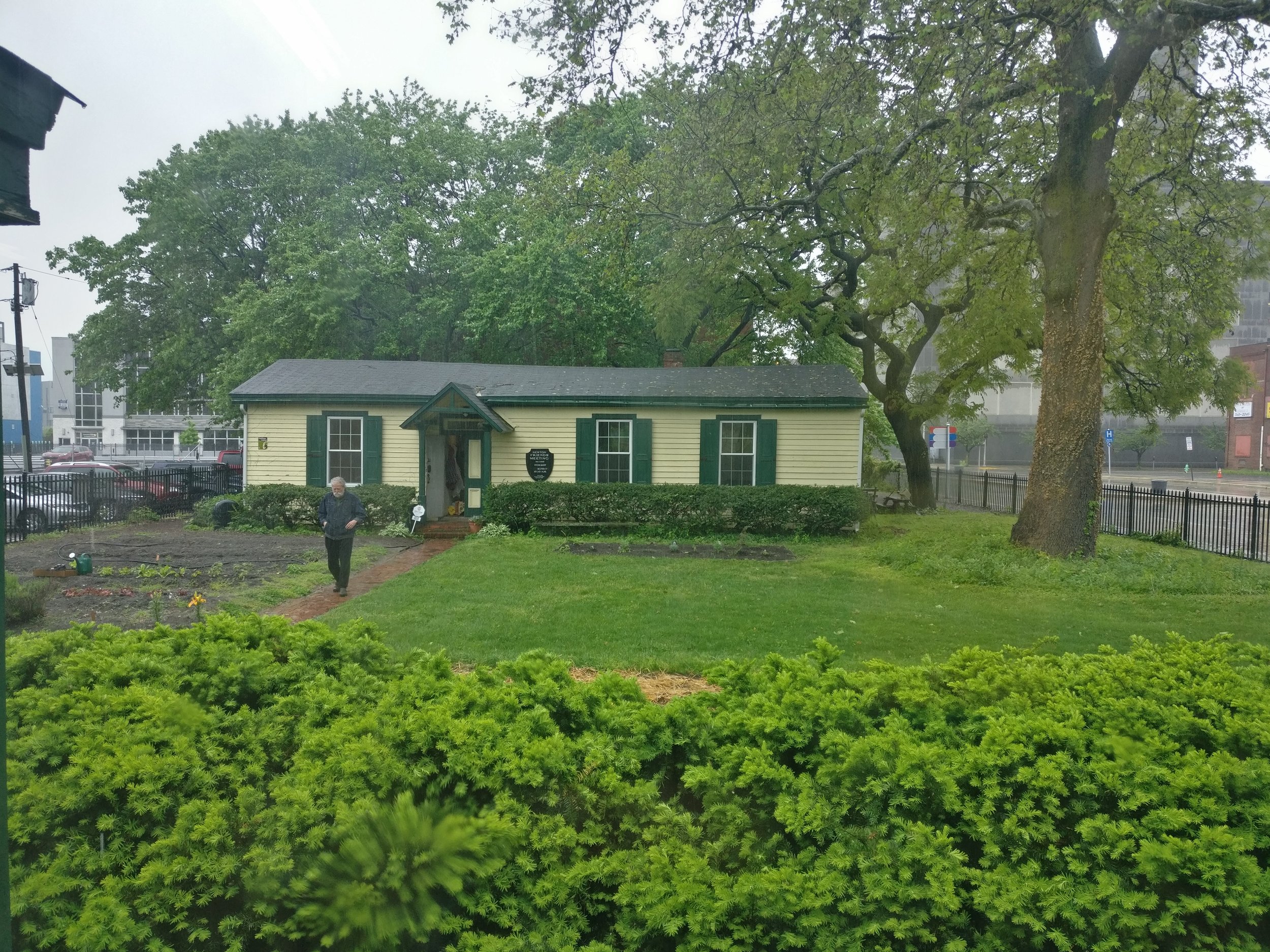
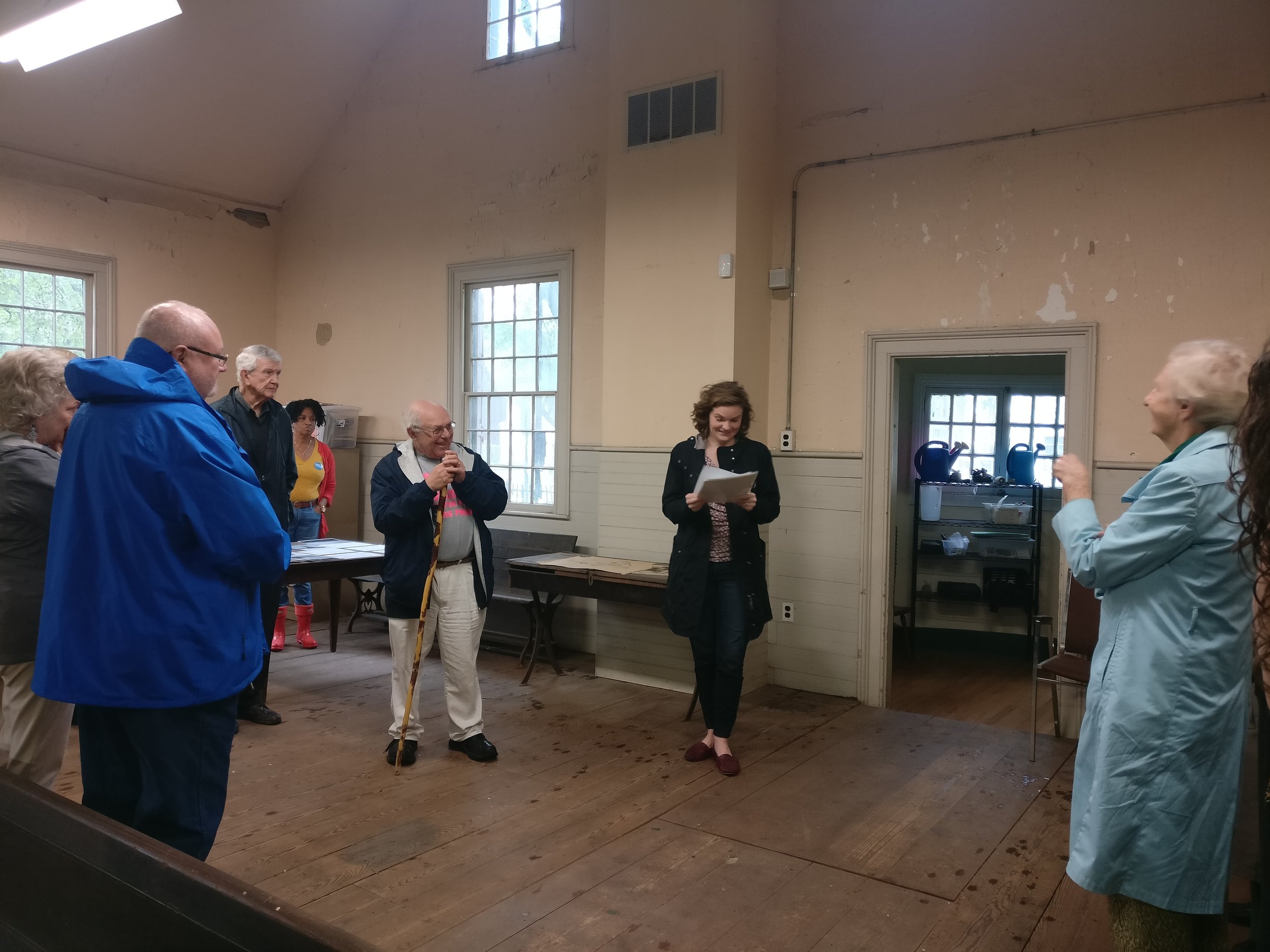

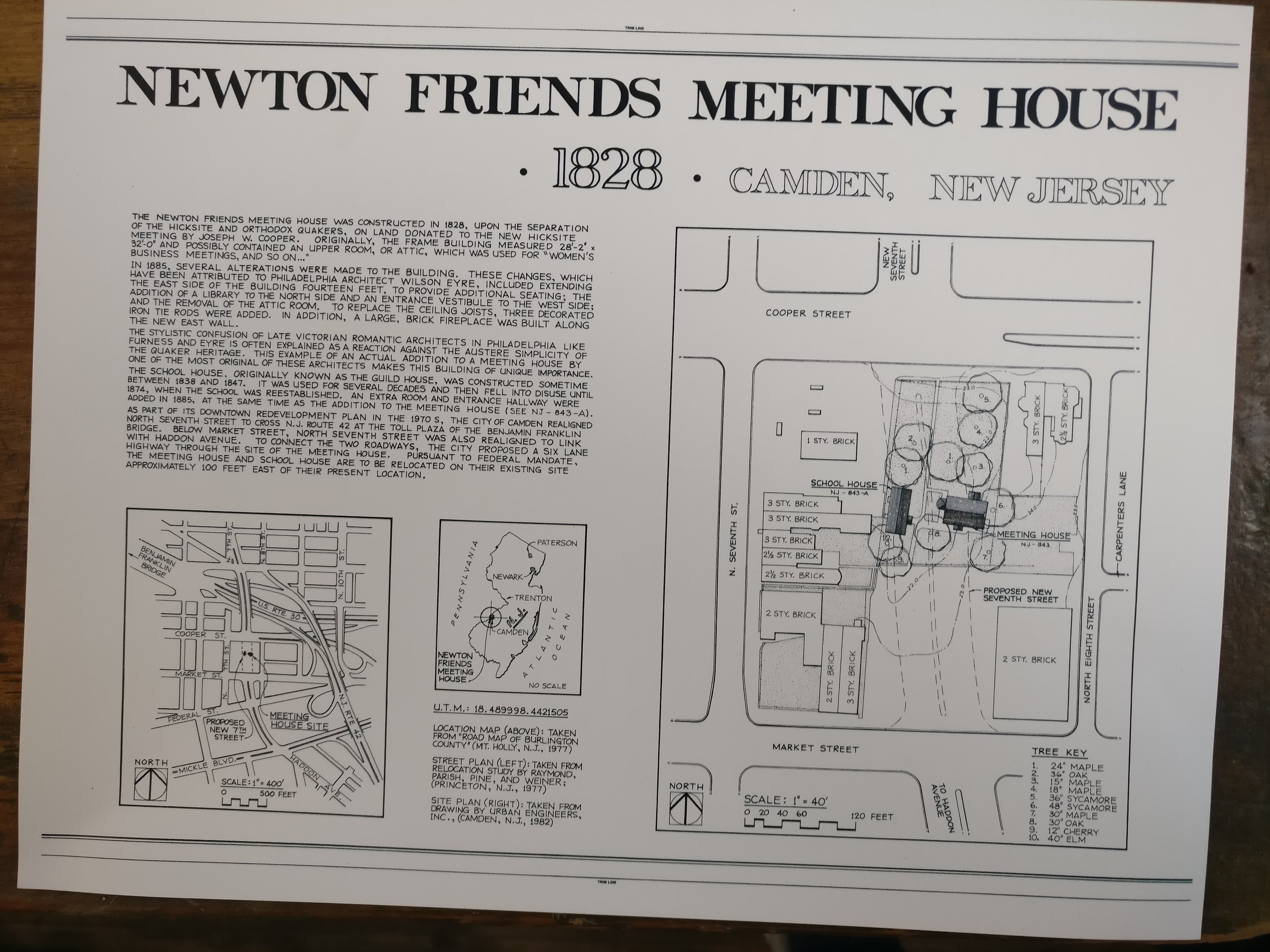
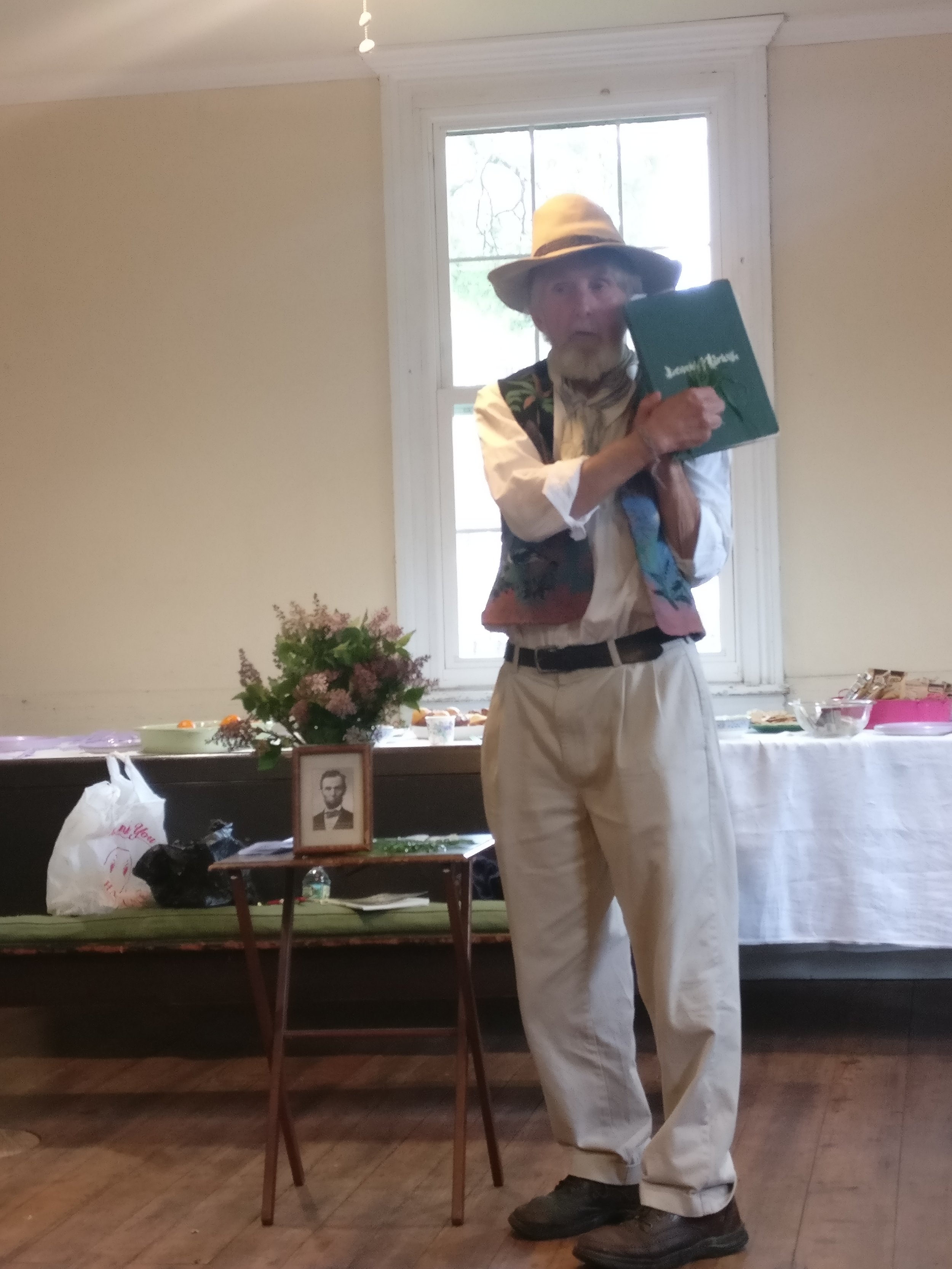
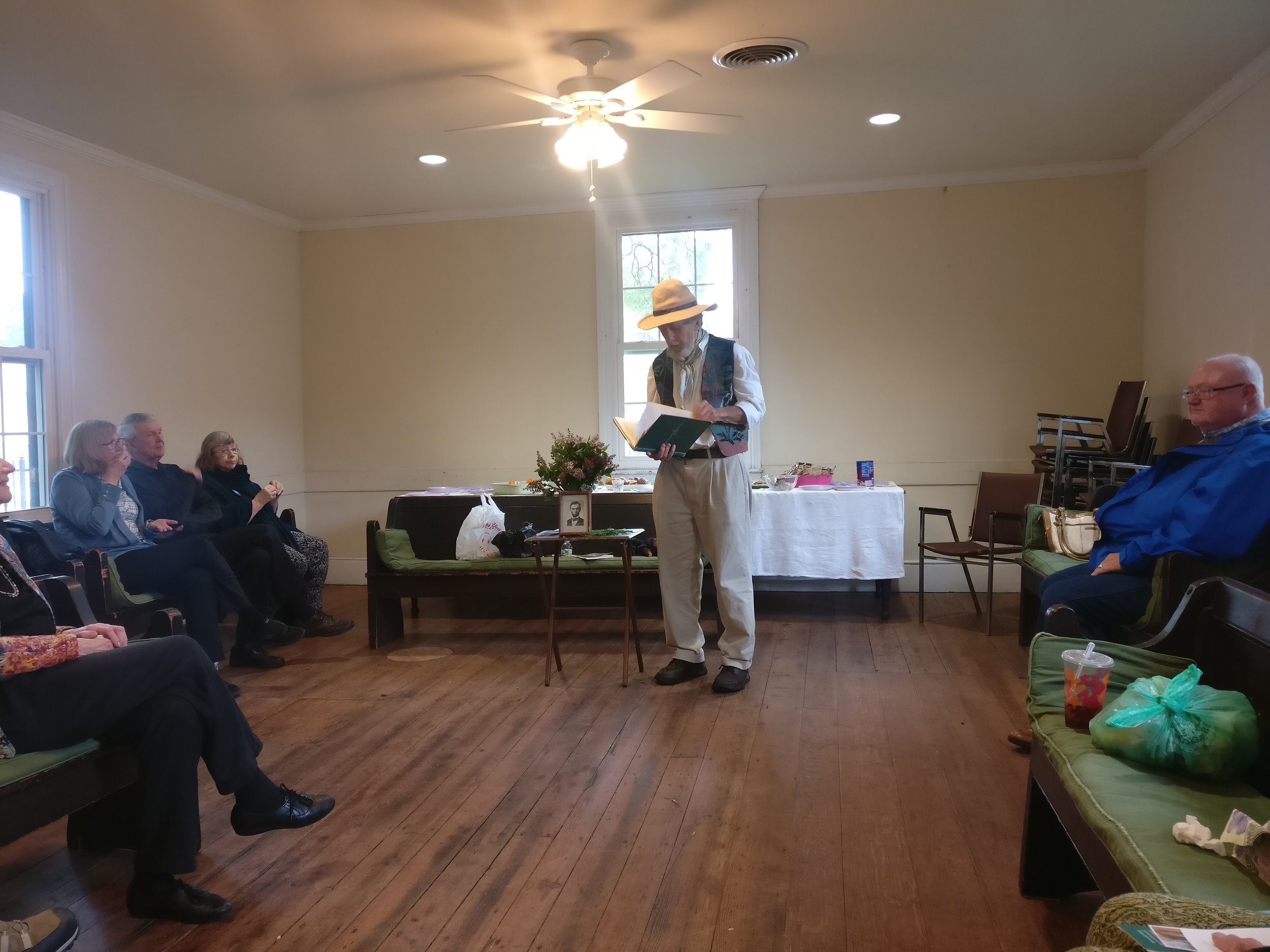
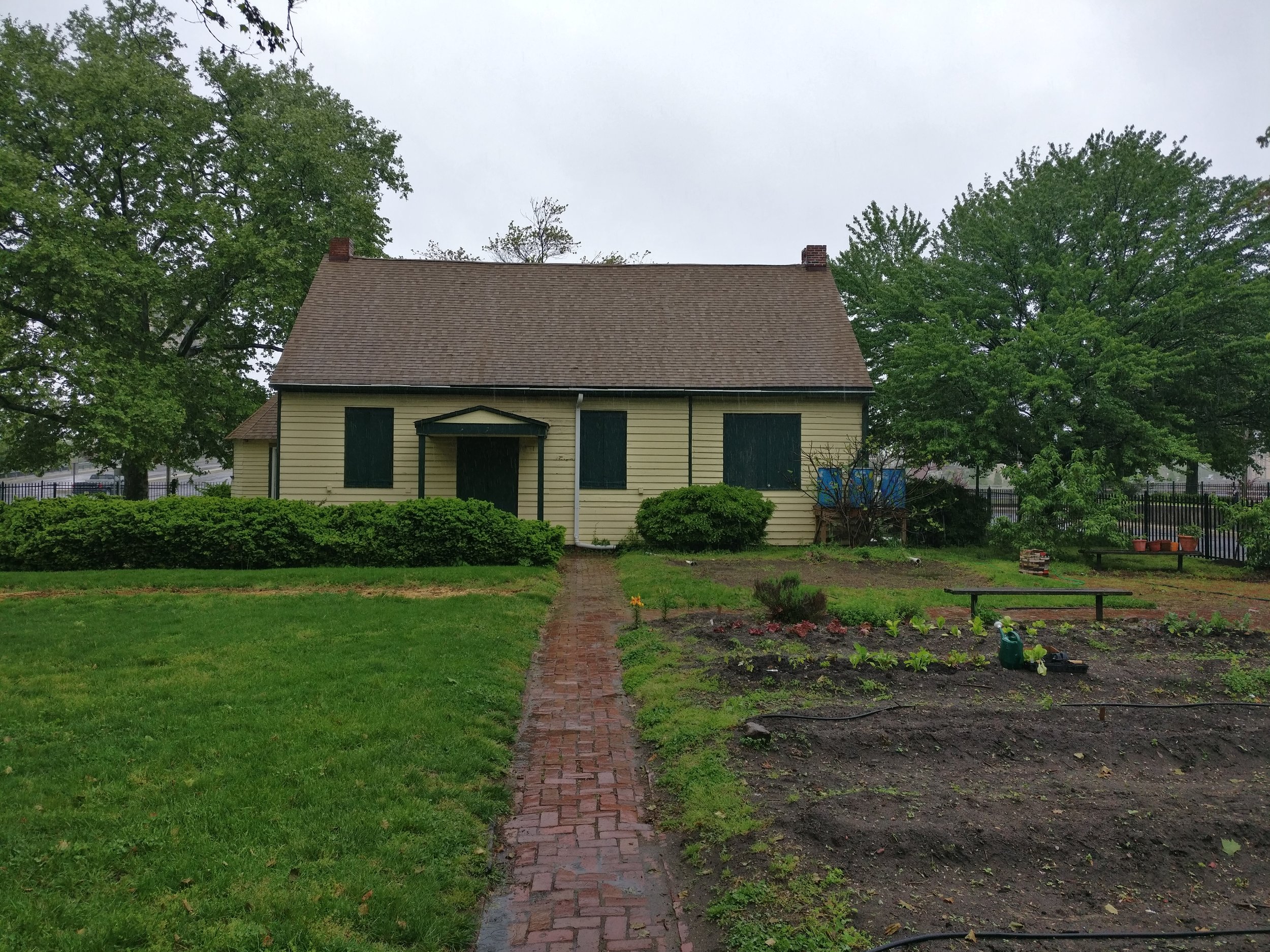
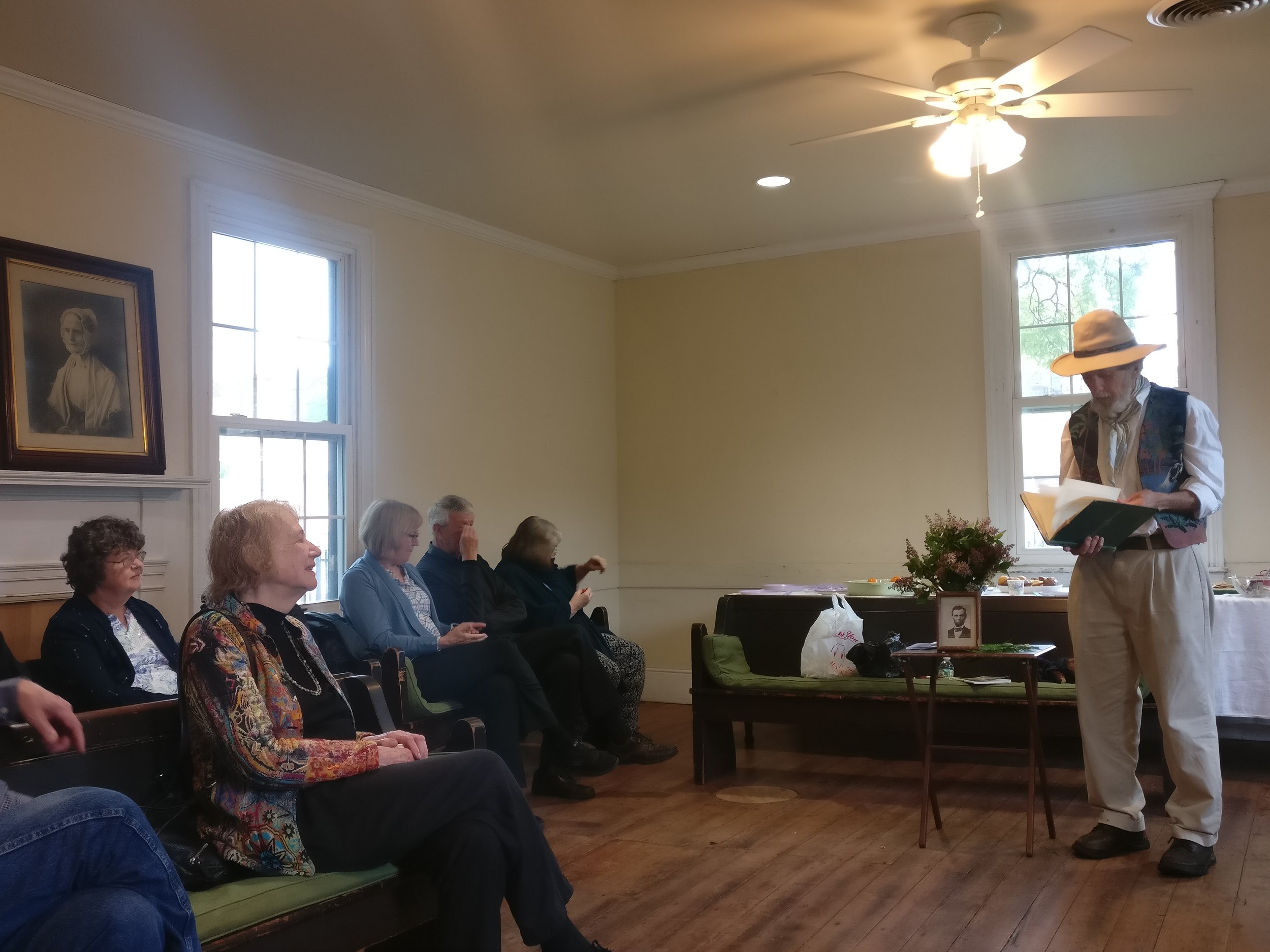
FALL 2018
FHA ANNUAL MEETING, November 10, 2018
Arch Street Meeting House, 320 Arch Street, Philadelphia, PA
Lecture: “Quakerism, Gender, and Reform: The Life and Work of George W. Taylor”
Julie Holcomb was the speaker for the 2018 Friends Historical Association annual meeting. Her talk on George Taylor conveyed Taylor’s work with the free produce movement and the relationship between religion, reform, business, and gender as seen in Taylor’s life and work.
Julie Holcomb is the new Editor of the journal Quaker History, bringing her experience as an Associate Professor of Museum Studies at Baylor University, Waco, Texas, to the position. A the end of her lecture, Julie shared her vision for the future of Quaker History. Her publications include Moral Commerce: Quakers and the Transatlantic Boycott of the Slave Labor Economy; “Rejecting the Gain of Oppression: Quaker Abstention and the Abolitionist Cause”; and “From Enslaved to Liberators: African Americans and the Civil War.” Her knowledge of technology and publishing will position FHA to develop new platforms for offering Quaker scholarship.
Spring 2018
Annual Spring Trip
June 22-24, 2018
Conference of Quaker Historians and Archivists at the University of Massachusetts, Amherst, MA
June 24-26, 2018
Post-Conference Bus Tour of Historic Quaker Sites based in Providence, RI
The Conference of Quaker Historians and Archivists (CQHA) meets every other year. In 2018, the conference was held at the University of Massachusetts in Amherst, MA, from June 22–24, 2018, at the UMass Campus Center.
The conference began with a set of archives-oriented sessions on the first day, followed by history sessions for the next two days.
An optional post-conference Bus Tour of Quaker Sites ran from the end of the conference on June 24 to 5:00 p.m. on June 26 and was based in Providence, RI. The Friends Historical Association subsidized the cost of the tour and arranged for a van to provide transportation to interested members, departing from the Philadelphia area.
Spring 2017
Annual Spring Trip: LENAPE AND QUAKER RELATIONSHIPS IN SOUTHERN NEW JERSEY
Each spring, Friends Historical Association arranges a tour to a Quaker site of interest. On May 6, 2017, inspired by the previous November’s conference, “Quakers, First Nations and American Indians from the 1650s to the 21st century,” we traveled to southern New Jersey to learn about past and present Quaker-Indian relationships, share stories, and renew friendships. We made stops at the following sites:
Salem Oak and Friends Burial Ground, also the site of the first Quaker meeting in West Jersey, where tour members received a warm welcome from a member of the Lenni-Lenape tribe;
Lower Alloways Creek Meeting House, which was named for Aloes or Alowas, a Lenape sachem;
Greenwich Village, with opportunities to see Greenwich Friends Meeting, Bacons Neck, Ambury Hill Graveyard, the Cumberland County Prehistorical Museum, and the 1870 monument erected by Quaker George Bacon Wood to an Indian chief whose name is lost;
Nanticoke Lenni-Lenape Tribal Grounds, where a delicious meal was shared, greetings and gifts exchanged, and friendships renewed; and
Gouldtown, established 1690, possibly the oldest African-American community in the United States.
FALL 2016
Quakers, First Nations and American Indians from the 1650s to the 21st century
The Friends Historical Association's Annual Meeting took place in conjunction with this three-day conference, which was held Thursday, November 10 through Saturday, November 12 at the University of Pennsylvania (Nov. 10), Bryn Mawr College (Nov. 11), and Haverford College (Nov. 12).
"Quakers, First Nations and American Indians from the 1650s to the 21st century" examined relations between American Indians, First Nations and the Society of Friends. The 17th century founding of the colony of Pennsylvania was made possible by a unique accommodation among Lenape Indians and the Quaker settler colonials. During the 18th and 19th centuries, the Quaker reputation for maintaining good relations with American Indians gave them influence in federal policy on Indian Reservations, at boarding schools and in adoption programs. Quakers also reached out to Canadian officials and the First Nations of Canada. Over time, the pattern of interaction between Quakers, First Nations and American Indians has taken many turns, sometimes giving rise to currents of distrust and disappointment, darkening the celebration of Pennsylvania’s mythical, original peace.
The FHA Annual Meeting on Saturday, November 12 at Haverford College included a Luncheon Meeting and Panel Presentation.
Panel Presentation: Quaker Indian Schools
Chair: Joshua Moses
Elizabeth Thompson, “Quakers and American Indian Assimilation: Teaching American Indian School Children their Positions”
Paula Palmer, “The Quaker Indian Schools, 1797-2005: What Were They Thinking?”
Thomas J. Lappas, “Tunesassa Echoes and the Temperance Struggle: A Family Tradition at Tunesassa Quaker Indian School, Allegany Reservation Across Generations”
Keynote speakers for the conference were John Echohawk, Pawnee, executive director of the Native American Rights Fund, and Jean Soderlund, author of Lenape Country: Delaware Valley Society before William Penn.
Spring 2016
ANnual Spring Trip: QUAKER AND REFORM MOVEMENTS SITES IN CENTRAL NEW YORK STATE
In May of 2016, Friends Historical Association sponsored a three-day tour of historic sites relating to Quakers and movements for equality (for Native Americans, African Americans, and women) in upstate New York.
See photos from the trip here.
Participants also celebrated the 200th anniversary of the 1816 Quaker Meetinghouse in Farmington, New York.
The tour included:
Rochester home of Susan B. Anthony, 19th century women’s rights leader
1816 Farmington Quaker Meetinghouse, a center of national movements for equal rights
M’Clintock House, home of Thomas M’Clintock (clerk of Genesee Yearly Meeting of Friends), Mary Ann M’Clintock, and their five children, where the Declaration of Sentiments was written in 1848
Women’s Rights National Historical Park, Seneca Falls, site of the first women’s rights convention, where Quakers made up the largest single religious group
Seward House, home of William H. Seward, Secretary of State under Abraham Lincoln, and Frances Seward, Quaker abolitionist and women’s rights supporter
Auburn home of Harriet Tubman, the “Moses of her People” and a major underground railroad agent
Howland Stone Store, operated by Slocum Howland, Quaker and underground railroad agent
North Street Meetinghouse, 1834, Orthodox Meetinghouse and major center of reform movements.
Locations in Farmington and Sherwood were so important for reform movements that they are listed on the National Register of Historic Places as the Farmington Quaker Crossroads Historic District and the Sherwood Equal Rights Historic District.
Tour participants ate dinner Friday evening with Farmington Friends Meeting and joined in meeting for worship and lunch Sunday with Friends at Poplar Ridge.



